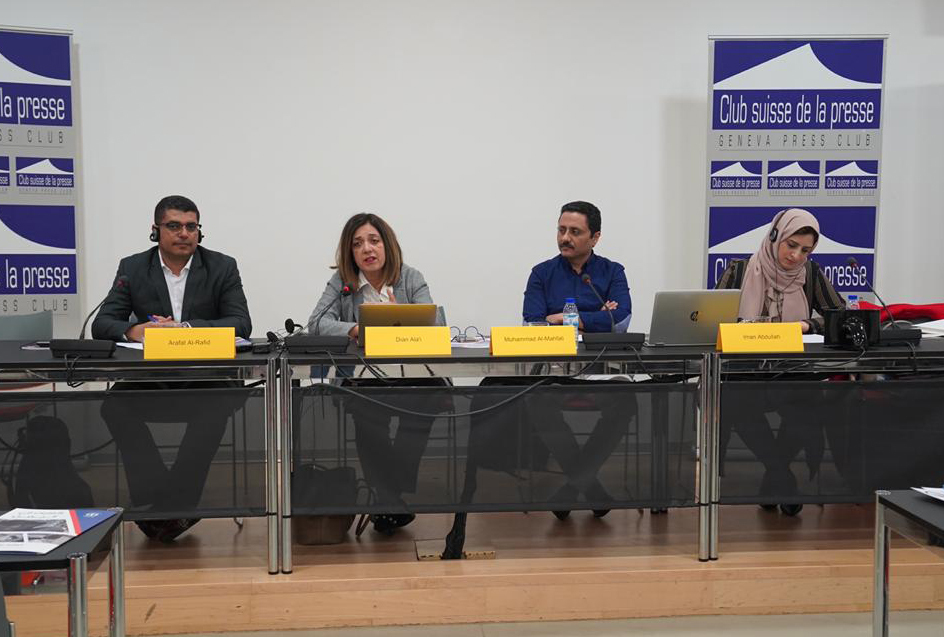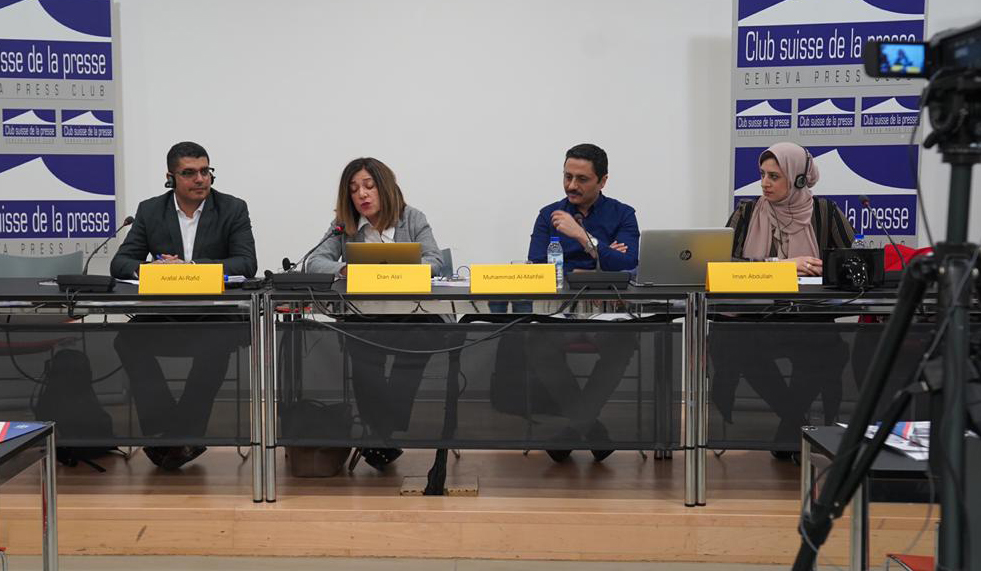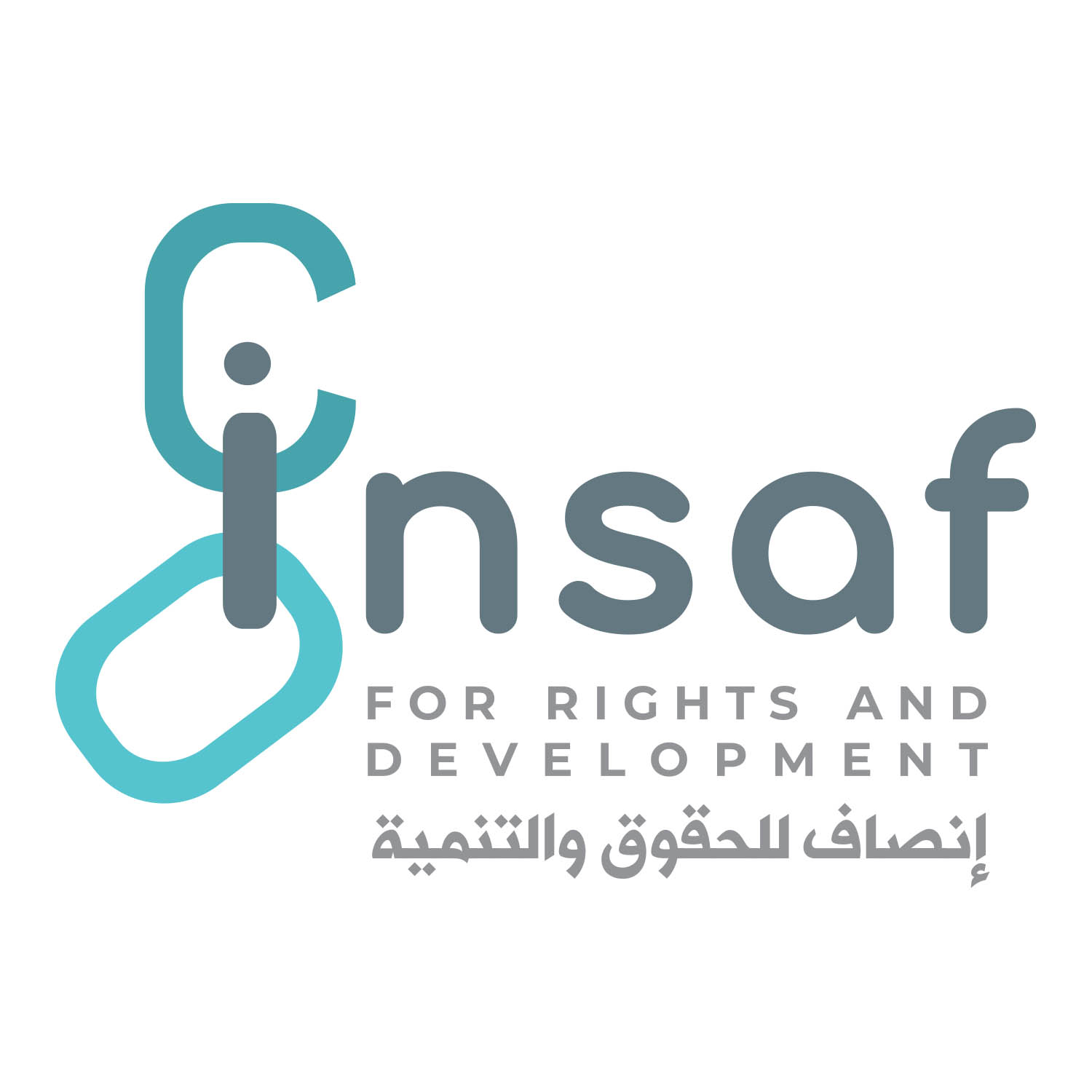On the sidelines of the Human Rights Council meetings held in Geneva at its forty-third session, INSAF Center for Defending Freedoms & Minorities organized a seminar titled “The Conflict in Yemen & its Impact on Minorities”. Four researchers and activists concerned with human and minority rights participated as speakers in this event. The seminar was held in the main conference hall of the Swiss Press Club, and was attended by a number of interested, media and human rights activists.
The event opened with a speech from activist Eman Abdullah, head of INSAF Center for Defending Freedoms & Minorities, in which she addressed the situation of minorities in Yemen and their tragic conditions at various stages. This included the conditions due to the deteriorating humanitarian situation in general, and some that relate to their situation within society or what these minorities encounter from direct violations, especially at the hands of the Houthis, who have not shown any respect to any humanitarian or legal covenants, treaties or norms.
In her speech, Miss Abdullah highlighted the tragedy suffered by members of the Jewish and Baha’i communities. The situation of the people of the Baha’i community in the Houthi-controlled areas is dangerously getting worse by the day, in a way that heralds the genocide of this sect from Yemen in light of the Houthis adaptation of the Iranian anti-Baha’i approach, known to the United Nations since the 1980s. The same applies to the Yemeni Jewish community, which has suffered from all kinds of persecution, abuse, the obliterating of its historical heritage, and the depriving of this sect’s right to political and civil participation, as well as forcibly displacing its members from their ancestral villages, homes, and livelihoods in light of racist religious practices that have been fueled by an extreme religious political establishment for decades. These abuses became much fiercer since the early beginnings of the Saada wars between the publicly anti-Jewish Houthis and the Yemeni government, and peaked when the Houthis took control of Sana’a and force many Jewish families to migrate from Yemen, leaving behind their ancestral homes in fear of the Houthi’s slogan (Curse on the Jews).
Researcher & Human Rights Activist Arafat Al-Rafid spoke about the tragic situation of minorities in Yemen, starting with the scientific rooting of the term minorities, pointing out that there are minorities in Yemen that are discriminated against not on ideological or ethnic basis, but rather on their professions, since Yemeni society tends to hold in contempt those who work in some professions such as butchers and barbers.
He also addressed the violations faced by the minority community in Yemen, focusing in particular on violations against the Bahais, the Muhamasheen (marginalized), and the Ismailis, whether these violations were committed by the Houthi militias, the legitimate government & the Arab Alliance, or even by Extremist Islamic Militant groups.
The Representative of the Global Baha’i Community at the United Nations in Geneva Dian Ala’i, presented a paper in which she specifically addressed the violations of the Baha’i community in Yemen that target the Baha’is in their lives, freedoms and property. In her paper, she refuted the accusations made by the Houthi authorities, and made it clear that these accusations were just flimsy excuses in order to justify the repression of this sect under the guise of protecting religion and dangers that society face from the faith of this minority. She also made it clear that the Baha’is in Yemen are an essential part of society, and that they have been active members of the community for decades. Ala’i also demonstrated the importance of having a common goal among the people of Yemen of different cultures and that the acceptance of differences is part of a society’s strength.
In his paper, Dr. Muhammad Al-Mahfali addressed the importance of documentation in the defense of minorities, indicating that this matter comes within the framework of correct information. Access to the right information is an important and serious issue, as it helps in the implementation of the correct and needed action in the correct place and time.
In this context, Dr. Al-Mahfali spoke about the Minorities in Yemen Book which was published by INSAF Center, and about the methodology of the book and the ways of obtaining correct information, and on the importance of this documentary work as part of the INSAF Center’s policy, as obtaining the correct information will help others, whether they are organizations or individuals, in order to be able to perform the appropriate actions needed that aim in the end to protect minorities.






